Market Share
Introduction: Navigating the Competitive Landscape of Diesel Generators
The diesel-engine market is going through a period of transformation, driven by technological advances and regulatory changes. For example, with a focus on energy efficiency and sustainability, Original Equipment Manufacturers are increasingly turning to IoT-based machine learning to optimize their engines’ performance and reduce emissions. IT systems integrators, meanwhile, are focusing on seamless integration and automation to position themselves as the enablers of smart energy solutions. In response to growing expectations for the reliability and resilience of the energy grid, energy suppliers are investing in greener grids to meet stricter regulatory requirements. Meanwhile, new entrants, such as biometrics and energy-management system start-ups, are challenging established players with niche solutions. But as regional markets, especially in Asia-Pacific and North America, continue to show significant growth potential, hybrid systems and the integration of renewable energy into the grid will be the dominant strategic deployment trends, forcing all stakeholders to rethink their strategies to maintain their leadership.
Competitive Positioning
Full-Suite Integrators
These vendors offer comprehensive solutions, integrating various technologies for robust diesel generator systems.
| Vendor | Competitive Edge | Solution Focus | Regional Focus |
|---|---|---|---|
| Caterpillar | Industry leader with extensive service network | Diesel generators and power systems | Global |
| Cummins | Strong focus on innovation and reliability | Power generation and engine solutions | Global |
| Generac | Market leader in residential and commercial solutions | Backup and primary power systems | North America |
Specialized Technology Vendors
These vendors focus on specific technologies or applications within the diesel generator market.
| Vendor | Competitive Edge | Solution Focus | Regional Focus |
|---|---|---|---|
| Perkins | Expertise in diesel engine technology | Engines and generator sets | Global |
| MTU Onsite Energy | High-performance power solutions | Power generation systems | Europe, North America |
| Wärtsilä | Innovative energy solutions for marine and land | Power plants and engines | Global |
Infrastructure & Equipment Providers
These vendors supply essential equipment and infrastructure for diesel generator operations.
| Vendor | Competitive Edge | Solution Focus | Regional Focus |
|---|---|---|---|
| Kohler | Diverse product range and customization | Generators and power systems | North America, Europe |
| Honda | Reputation for reliability and efficiency | Portable generators | Global |
| Atlas Copco | Focus on sustainable energy solutions | Power and flow solutions | Global |
| Yanmar | Compact and efficient engine technology | Marine and industrial engines | Asia, Europe |
| Himoinsa | Customizable power solutions for various sectors | Generator sets | Europe, Latin America |
| AJ Power | Tailored solutions for specific customer needs | Diesel generator sets | Europe, Middle East |
| Briggs and Stratton | Strong brand recognition in small engines | Portable and standby generators | North America |
| Doosan | Robust performance in heavy-duty applications | Power generation equipment | Asia, Europe |
| Toshiba | Advanced technology integration | Energy systems and solutions | Asia, North America |
Emerging Players & Regional Champions
- The Kohler Co., a manufacturer of portable and compact diesel generators, recently won a contract to supply a major construction project in California. It competed with established manufacturers by offering a new design and better fuel economy.
- Hemoinsa (Spain): Concentrates on hybrid diesel-generated power systems which integrate the use of renewable energy sources. Recently implemented a project in the field of the new energy sector in Portugal, complementing its traditional diesel offerings with the provision of green alternatives.
- F.G. Wilson (UK): This company, which is known for its high-powered diesel generators, has recently extended its operations in Africa with a major contract for a mining project, thus establishing itself as a regional champion in meeting local energy needs with its reliable solutions.
- Perkins Engines (UK): This British company, which manufactures diesel engines, has recently entered into a joint venture with a local distributor in Southeast Asia. The two companies have teamed up to challenge the established players in the market. They focus on localized service and the ability to customise their products.
- Caterpillar Inc. (USA): While a well-known player, its recent push into smaller, more efficient diesel generators for urban applications positions it as an emerging player in the compact generator market, competing with smaller manufacturers.
Regional Trends: In 2024 there will be a strong trend towards hybrid and environment-friendly diesel engines, especially in Europe and North America, where the regulatory and green agendas will be pushing. In addition, the growing markets of Africa and Southeast Asia are increasingly embracing small and portable generators as they develop their infrastructure and urbanize. In terms of technology specialization, the emphasis will be on greater fuel efficiency and integration with renewable energy.
Collaborations & M&A Movements
- Caterpillar Inc. and Cummins Inc. entered into a partnership to develop hybrid diesel generator systems aimed at reducing emissions and improving fuel efficiency, enhancing their competitive positioning in the eco-friendly energy sector.
- Generac Holdings Inc. acquired the assets of Pika Energy in early 2024 to expand its product offerings in the renewable energy space, thereby increasing its market share in the growing hybrid generator segment.
- Kohler Co. and Schneider Electric announced a collaboration to integrate IoT technology into diesel generators, aiming to enhance operational efficiency and attract tech-savvy customers in the industrial sector.
Competitive Summary Table
| Capability | Leading Players | Remarks |
|---|---|---|
| Fuel Efficiency | Caterpillar, Cummins | Caterpillar has implemented advanced fuel management systems that optimize fuel consumption, resulting in up to 10% savings. Cummins offers innovative engine designs that enhance fuel efficiency, demonstrated in their latest QSB series. |
| Emissions Control | Kohler, MTU | Kohler's generators are equipped with state-of-the-art emissions reduction technologies, achieving compliance with stringent EPA regulations. MTU has developed a range of low-emission engines that significantly reduce NOx and particulate matter. |
| Remote Monitoring | Generac, Atlas Copco | In this way, it is possible to monitor the generator's performance remotely, through the use of a mobile application. Atlas Copco's remote monitoring solutions allow for real-time data analytics, enabling maintenance to be scheduled. |
| Noise Reduction | Honda, Perkins | Honda's EU series generators are known for their quiet operation, making them ideal for residential use. Perkins has developed sound-attenuated enclosures that significantly reduce noise levels, catering to urban applications. |
| Durability and Reliability | John Deere, Wärtsilä | John Deere's generators are built with robust components designed for harsh environments, ensuring long-term reliability. Wärtsilä's engines are known for their high durability, with many units operating beyond 20,000 hours without major overhauls. |
| Customization Options | FG Wilson, Doosan | FG Wilson offers a wide range of customizable options for their generators, allowing clients to tailor specifications to their needs. Doosan provides modular designs that can be easily adapted for various applications, enhancing flexibility. |
Conclusion: Navigating Diesel Generator Market Dynamics
The diesel-generator market in 2024 is characterized by intense competition and high fragmentation. Both established and new players are vying for a piece of the pie. The trend toward more sustainable and flexible energy solutions is reflected in the regional trends, and this will force the suppliers to adapt and innovate. In order to compete, the established companies are relying on their reputation and their extensive distribution networks. The new players are relying on advanced capabilities such as artificial intelligence, automation and sustainability. In the future, the ability to integrate these capabilities will be the key to market leadership and to meeting the diverse needs of the customer and the regulatory demands. In order to maintain the long-term competitiveness and ensure success in the rapidly changing business environment, the leaders must therefore make strategic investments in these capabilities.


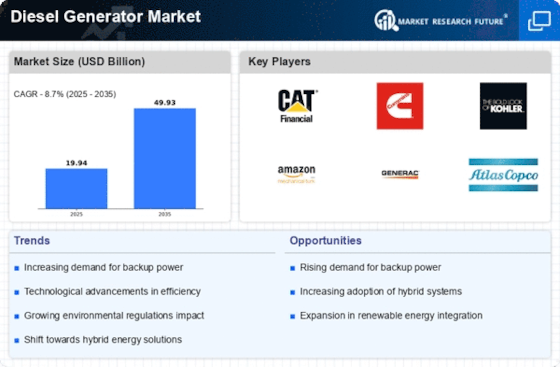
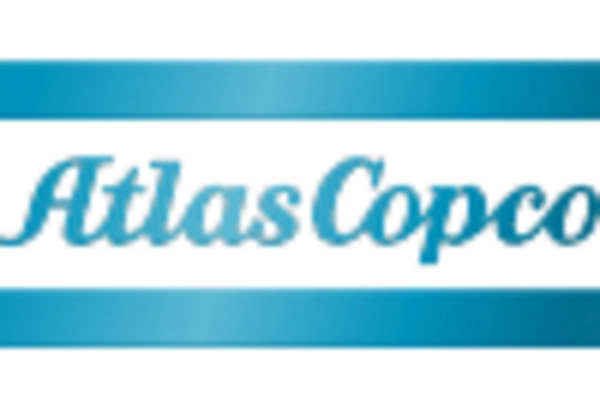
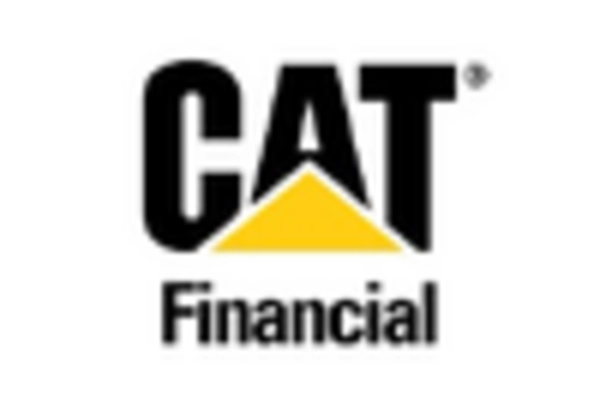
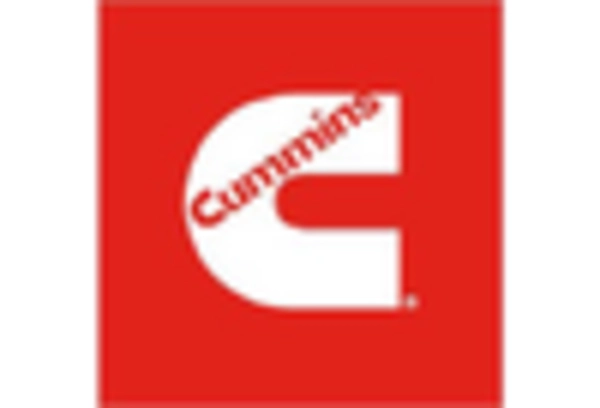
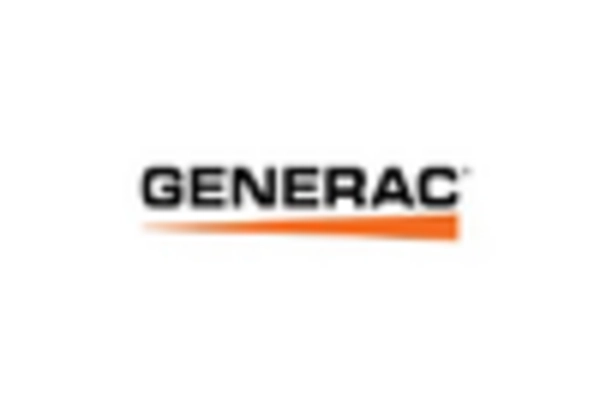
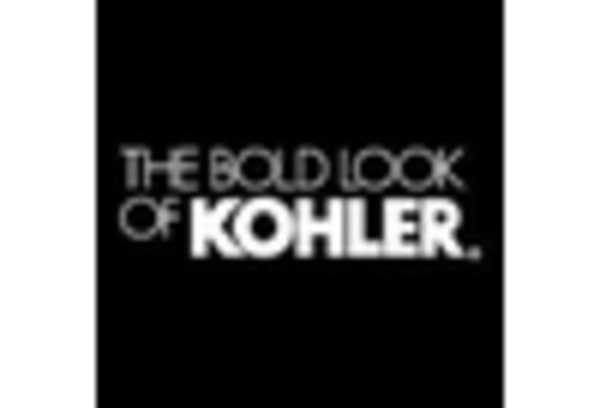
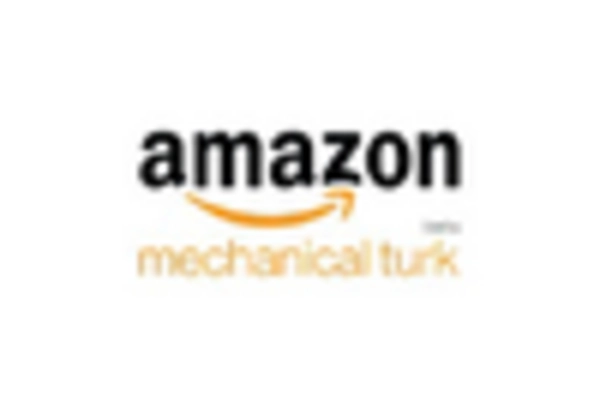










Leave a Comment